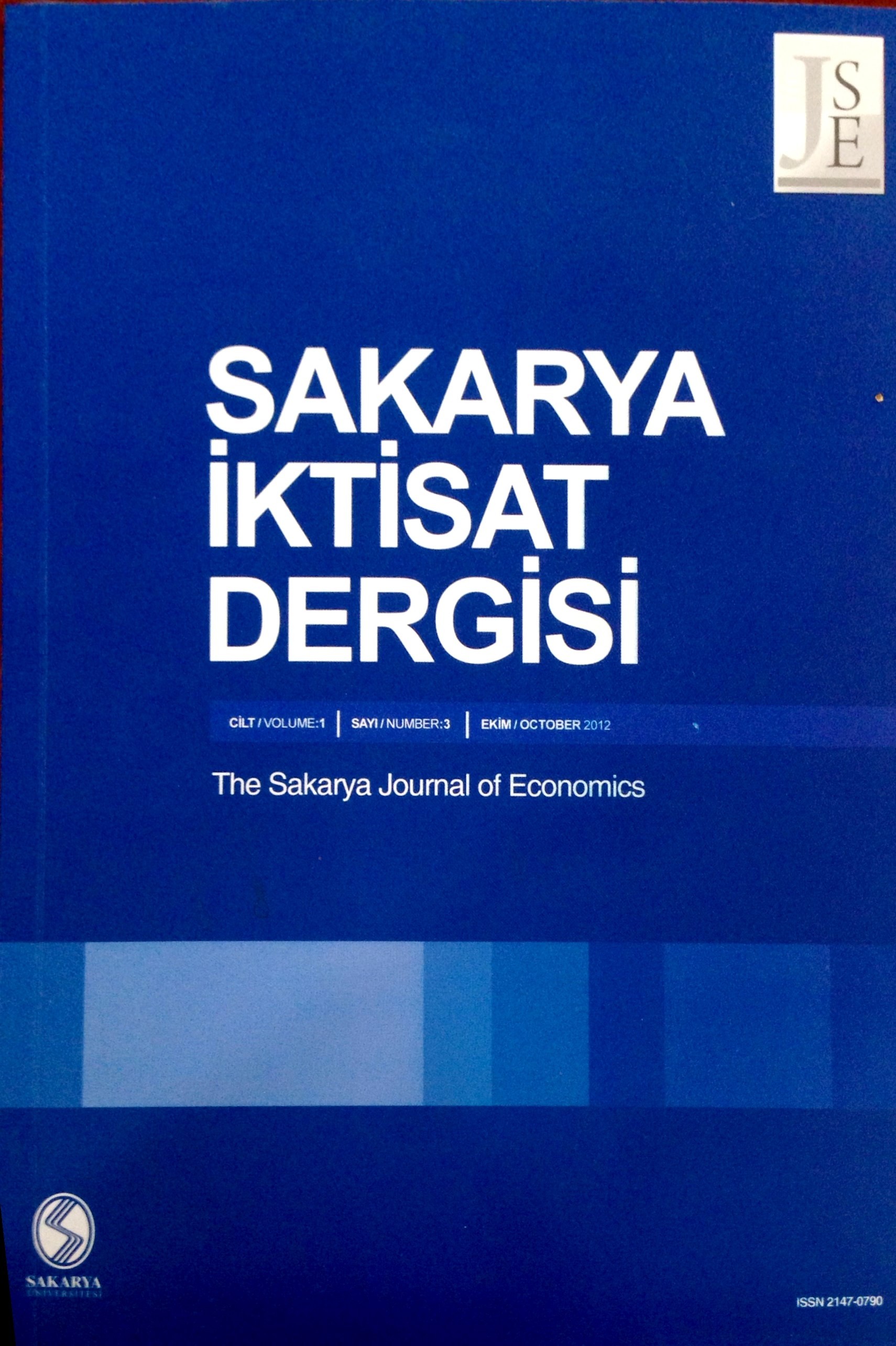ENTELEKTÜEL PERFORMANSI ÜZERİNDE ETKİSİ: BORSA İSTANBUL’DA İŞLEM GÖREN BİLİŞİM ŞİRKETERİ ÜZERİNE BİR UYGULAMA
Bu çalışmada, entelektüel sermayenin firma performansı üzerindeki etkisinin tespit edilip yorumlanması amaçlanmıştır. Bu bağlamda, finans literatüründe genel olarak kullanılan Entelektüel Katma Değer Katsayısı (Value Added Intellectual Coefficient- VAIC) yöntemi dikkate alınarak panel veri analizi tekniği kullanılmıştır. Analizimizde, Borsa İstanbul Bilişim Endeksi’nde faaliyetlerini sürdüren 12 şirketin 2008-2012 yılları kapsayan 5 yıllık piyasa ve muhasebe verileri kullanılmıştır. Elde edilen bulgulara göre, firma performans ve verimlilik değişkenleri ile analizde kullanılan entelektüel sermaye ölçüm katsayılarından kullanılan sermaye ve insan sermayesi arasında istatiksel olarak anlamlı ve pozitif ilişkinin varlığı ortaya çıkmıştır. Yapısal sermaye etkinliğinin ise, sadece firmanın aktif devir hızı değeri üzerinde anlamlı bir etkiye sahiptir. Entelektüel sermaye katsayılarının farklı düzeylerde anlamlı etkiye sahip olması, bilgi-yoğun temelinde hizmet gösteren firmaların yer aldığı BİST Bilişim Endeksi’nde gerçekleştirilen bu çalışmanın literatürle paralellik gösterdiği görülmüştür
Anahtar Kelimeler:
Entelektüel Sermaye, BİST Bilişim
SERMAYENİN ÖLÇÜLMESİ VE FİRMA
This paper examines the presence of the effect of intellectual capital on firm performance in the BIST Inf. Technology Index. In this perspective, Value Added Intellectual Coefficient-VAIC method, which is commonly used in the finance literature, taking into account for this research. In this context, the paper use the method of pooling data OLS, Panel data regression to test the relationship between intellectual capital and firm performance from 2008 to 2008 by covering 12 companies and employing market and accounting data.According to the findings, strong and positive relationship has occured between the firm performance and productivity variables and intellectual capital measurements, namely capital employed and human capital. In the context of structural capital efficiency, it has a significant effect on the only the firm's asset turnover ratio that is employed as a productivity dependent varibale. It can be concluded that outcomes of the research is in line with the literature
- ISSN: 2147-0790
- Yayın Aralığı: Yılda 4 Sayı
- Başlangıç: 2012
- Yayıncı: Sakarya Üniversitesi
Sayıdaki Diğer Makaleler
FİNANSAL BULAŞICILIK ÇERÇEVESİNDE KÜRESEL KRİZ VE TÜRKİYE’YE ETKİLERİ
Havva Nesrin TİRYAKİ, Aykut EKİNCİ
2014 TÜRKİYE CUMHURBAŞKANLIĞI SEÇİMİNİN POLİTİK PAZARLAMA STRATEJİLERİ AÇISINDAN ANALİZİ
DOĞRUDAN YABANCI SERMAYE YATIRIMI VE DIŞ REKABET GÜCÜ İLİŞKİSİ: TÜRKİYE İÇİN NEDENSELLİK ANALİZİ
